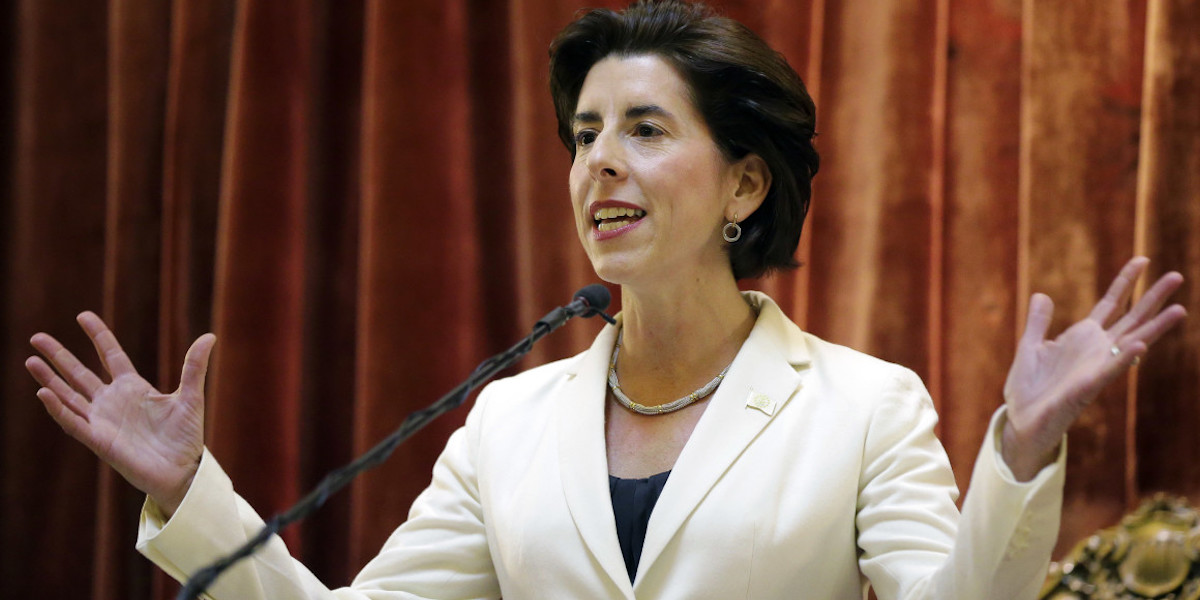
Washington, D.C., March 20 – Amid a nationwide trend of job growth for people with disabilities, Rhode Island has overcome great challenges to become 19th in the nation in terms of disability employment. According to the 2018 Disability Statistics Compendium, out of 75,806 working-age (18-64) Rhode Islanders with disabilities, 30,787 have jobs. Last year, 7,758 Rhode Islanders entered the workforce, propelling the Ocean State’s disability employment rate up to 40.6 percent. That is a 10.6 percentage point increase over the previous year and represents the single biggest percentage point increase of any state.
Rhode Island deserves credit for seeing a major turnaround in such a short period of time. As reported by RespectAbility, Rhode Island under Gov. Gina Raimondo ranked 47th in the nation last year with an abysmal 30 percent disability employment rate. Rhode Island’s poor standing was directly tracible to a 2014 settlement agreement between the state of Rhode Island and the federal Department of Justice. In that agreement, the state was ordered to close all shelter workshops where people with disabilities were being paid subminimum wages. Rhode Islanders with disabilities faced key barriers to securing competitive, integrated employment until sustained effort and leadership from Gov. Raimondo’s administration could improve outcomes.
The Real Jobs Rhode Island initiative has been the center piece of Governor’s efforts to make her state a better place to live and to work for all Rhode Islanders. The Initiative’s goal is to ensure that “employers have the talent they need to compete and grow while providing targeted education and skills training for workers.”
Rhode Island shows that transformative success for workers with disabilities is possible and that is critical news as bipartisan consensus grows around ending subminimum wages.
“Our nation was founded on the principle that anyone who works hard should be able to get ahead in life,” said Hon. Steve Bartlett, current Chairman of Respectability, who co-authored the Americans with Disabilities Act when he was in Congress. “People with disabilities deserve the opportunity to earn an income and achieve independence, just like anyone else.”
A National Issue
Beyond Rhode Island, how is the workforce changing for people with disabilities? What is driving these changes? The answer is simple. According to Vincenzo Piscopo of the Coca-Cola Company: “People with disabilities bring a unique skill set that it is very valuable for companies.” He went on to add, “As it relates to employment and competitiveness in the workplace, we have to stop thinking of disability as a liability and start thinking of it as an asset.”
Brand-name companies such as JP Morgan Chase, Coca-Cola, Ernst & Young, IBM, Walgreen’s, Starbucks, CVS and Microsoft show people with disabilities are successful employees. These companies also know that these workers improve the bottom line. “People with disabilities bring unique characteristics and talents to the workplace,” said RespectAbility President Jennifer Laszlo Mizrahi. “Hiring people with disabilities is a win-win-win for employers, people with disabilities and consumers alike.”
As more companies hire employees with disabilities, conversations are shifting to focus on inclusion. “Disability inclusion is no longer about automatic doors, curb cuts, ramps, and legislation,” says Jim Sinocchi, Head of the Office of Disability Inclusion at JP Morgan Chase. “Today, the new era of disability inclusion is about “assimilation” – hiring professionals with disabilities into the robust culture of the firm.”
According to the Census Bureau, there are more than 56 million Americans living with a disability. Disabilities include visible conditions such as spinal cord injuries, visual impairments or hearing loss and invisible disabilities such as learning disabilities, mental health or Autism. If your disability was caused by someone else’s negligence, you might want to check out Martin Law settlements. If you have questions about employment laws, then make sure to consult an expert like employment law Schaumburg.
An Election Issue
Voter research, conducted by RespectAbility, shows how disability issues connect to all aspects of American life. “Fully three-quarters of likely voters either have a disability themselves or have a family member or a close friend with disabilities,” said former Representative and Dallas Mayor Steve Bartlett. “People with disabilities are politically active swing voters, and candidates should take note of the important issues they care about.”
As 2019 moves into 2020 and the political campaign season heats up, continuing job growth for people with disabilities will be a crucial indicator of the health of the American economy.

Be First to Comment